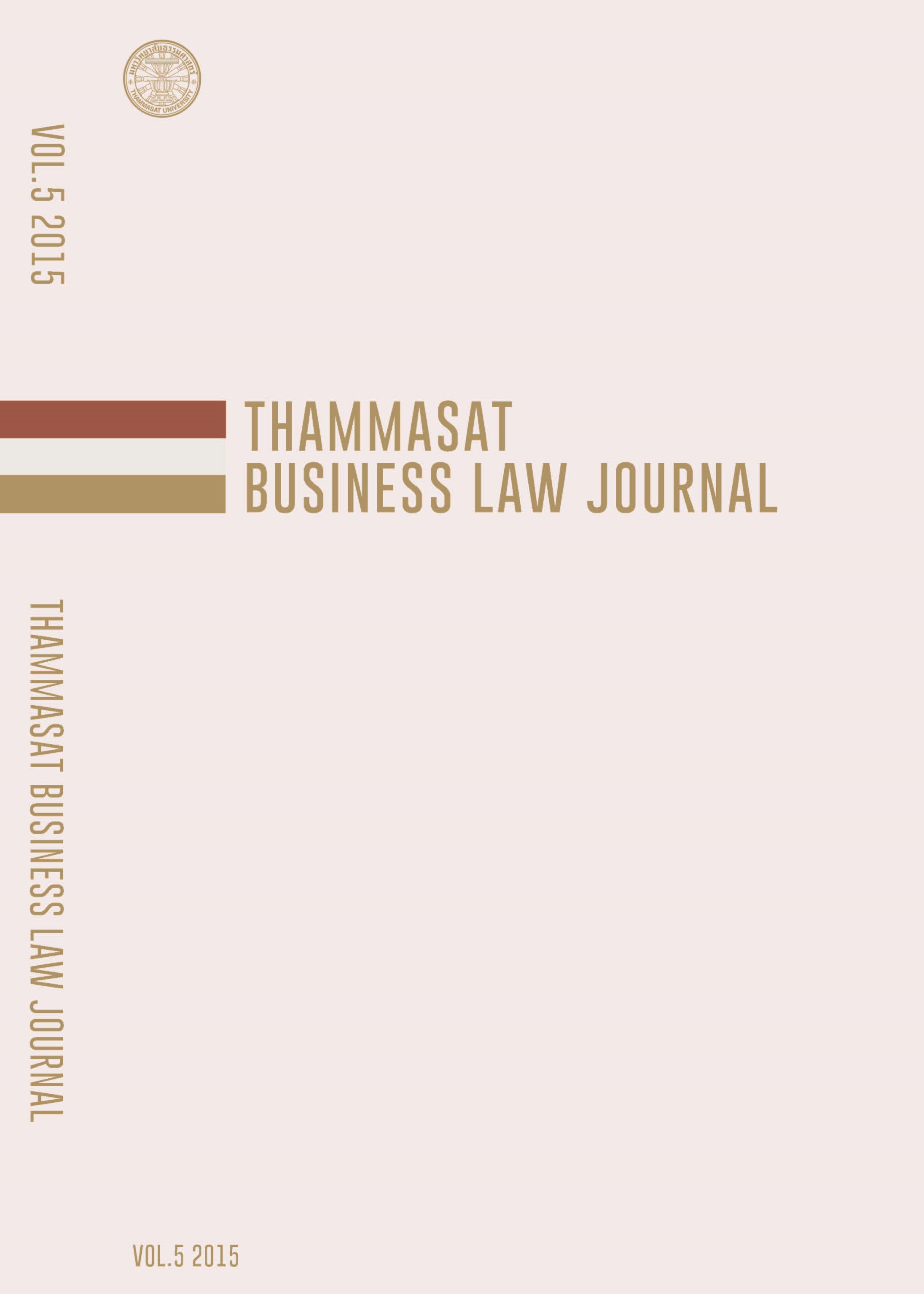Legal Measures to Facilitate the Offering of Equity Crowdfunding
Main Article Content
Abstract
Crowdfunding, in general, is a means of raising fund for commercial and non-commercial purposes. Non-commercial crowdfunding comprises “donation-based crowdfunding” and “reward-based crowdfunding” while commercial crowdfunding consists of “lending-based crowdfunding” and “equity-based crowdfunding.” Crowdfunding begins with any person or entity posts a request for funding on a crowdfunding portal (normally in the form of website) with the specified details as to which project or product the persons raise money for and how they will use the money. They may indicate what investors will receive in return of their contributions or investment. When investors browse through projects shown on the crowdfunding portals and find projects of their interest, the investors then put money to finance that project. This thesis focuses on equity crowdfunding which investors receive shares of company in return of their investment.
Prior to May 16, 2015, the offer for sale of shares cannot be done without the approval from the Office of the Securities and Exchange Commission and only public limited companies are able to offer their shares to public. However, to provide an alternative and inexpensive source of funding for SMEs and to offer another investment choice to the investors; the Securities and Exchange Commission, the Capital Market Supervisory Board, and the Office of the Securities and Exchange Commission have issued a set of Notifications allowing public offering of shares of limited companies possible if conducted through crowdfunding portals, and also exempt public limited companies from filing of registration statement and prospectus if the offers are made through crowdfunding portals.
Still, there might be loopholes or hindrances to these notifications that make them inadequate to facilitate the offer for sale of securities through equity crowdfunding portals in Thailand effectively. This thesis aims to identify those possible loopholes by adopting a method of comparative study of the law concerning equity crowdfunding in the United States and the United Kingdom in order to provide recommendations for Thailand’s current regulations. In conclusion, this thesis proposes that some provisions in the current notifications should be amended to better provide funding for startups and at the same time offer suitable investor protection.
Article Details
References
Cohn, Stuart R. “The New Crowdfunding Registration Exemption: Good Idea, Bad Execution.” Florida Law Review 64 (2012): 1434-1456.
Darke, Shekhar. “To Be or Not to Be a Funding Portal: Why Crowdfunding Platforms Will Become Broker-Dealers”, 10 HSTBLJ 183 (2014)
Steinhoff, Robert.“The Next British Invasion is Securities Crowdfunding: How Issuing Non-Registered Securities Through the Crowd Can Succeed in The United States”, 86 U.Colo.L.Rev. 661 (2015).
Weinstein, Ross S. “Crowdfunding in the US and Abroad: What to Expect When You’re Expecting”, 46 CORNELL INT’L L.J. 427 (2013)
Bradford, Steven C. “The New Federation Crowdfunding Exemption: Promise Unfulfilled”.
Bank of Thailand. “บทบาทของ ธปท. กับการช่วยเหลือเอสเอ็มอี”
EXIM Bank. “บทบาทของ SMEs ต่อเศรษฐกิจไทยและเปรียบเทียบศักยภาพในเวทีอาเซียน” (2012),
The Stock Exchange of Thailand. “Market Statistics”
US SEC. “Information Regarding the Use of the Crowdfunding Exemption in the JOBS Act”
“Review of Crowdfunding Regulation” (European Crowdfunding Network) at 224
“State of The States – List of Current Active And Proposed Intrastate Crowdfunding Exemptions (Updated)” (Crowdfunding Legal Hub)
ศิริวรรณ ว่องวีรวุฒิ, ผศ.อารมณ์ ริ้วอินทร์ “เงินทุนหมุนเวียน ทางเลือกและทางรอดของ SMEs”


